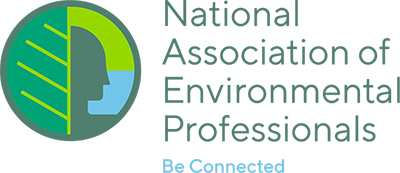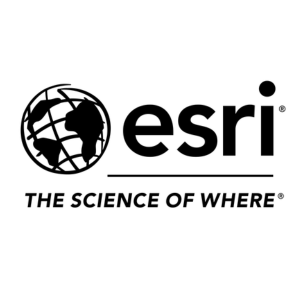
Attendee ExperienceAbout MinneapolisThe homelands of the Dakhóta Oyáte, Minneapolis straddles both banks of the Mississippi River centering around St. Anthony Falls, the only natural waterfall on the river. It is the largest city in Minnesota, and the second most populated urban area in the Upper Midwest (after Chicago). The coming together of many disparate ethnic groups in one place has made Minneapolis and the Twin Cities area culturally unique amongst America’s metropolitan centers. Getting AroundUbers and Lyfts are plentiful throughout the Twin Cities around the clock. The light-rail is an efficient and cheap way to travel from here to there between the airport, Mall of America, and Downtown (Blue Line) and Downtown Minneapolis, the University of Minnesota, and St. Paul (Green Line). When waiting for a train, be sure to remain vigilant, stay in well-lit areas, and travel with others after dark. If walking somewhere, be aware that city blocks in Minneapolis are longer than other cities. It takes 30-40 minutes to walk from one corner of downtown to the other. Many buildings in Downtown Minneapolis are connected by the Skyway System - enclosed pedestrian footbridges for traversing the city center without having to go outside. The skyway opens to the public at 7 AM and closes between 6 PM and 10 PM depending on the building you are trying to access. Free public-use restrooms are rare in Downtown Minneapolis, so you’ll want to plan ahead. Ticketed EventsWorkshop: Native American Cultural Awareness and Engagement Workshop – 8:00 - 12:00 PM – Sunday, May 5, 2024 Native American culture is rich and diverse, dating back thousands of years. The United States has a long history of discrimination against Native Americans. Many indigenous people have been displaced from their ancestral lands, and their cultures have been suppressed over generations. As part of this workshop, panelists including Tribal Historic Preservation Officers, Federal and State agency representatives, and experienced tribal engagement consultants will provide an overview of Native American history in the United States, particularly the Midwest. In addition, they will share their perspectives on tribal consultation and engagement and the requirements of tribal consultation under Section 106 and NEPA, and certain state laws, and best practices for tribal engagement. Tips and tools will be shared with participants regarding how to effectively facilitate tribal consultation and engagement. Please join us for this important workshop! Tickets are $100 each. Field Trip: Spring Lake Park – Bison Prairie – 1:00 - 4:00 PM – Sunday, May 5, 2024 The land that would become Dakota County, Minnesota, is the homeland for the Indigenous Dakota people. Prior to European settlement, the land consisted primarily of prairie and oak savanna. From time immemorial, Dakota people, bison and the prairie depended on each other. As part of the Spring Lake Park Master Plan, Dakota County worked Come listen to representatives from Dakota County and the Upper Sioux Community describe this unique partnership that resulted in the successful return of the culturally significant American plains bison to Dakota County. Transportation to and from Spring Lake Park Reserve will be provided, as well as an opportunity to see the bison in their new home. Roundtrip bus transportation from the conference hotel will be provided. Tickets are $50 each Presidents Reception: Padelford Riverboat Cruise – 6:00 - 9:00 PM, Monday, May 6, 2024 Join us on a Padelford Riverboat Cruise on the Mississippi River for this year's President's Reception! Network with fellow conference attendees as you take in the colorful scenery of the Twin Cities. Tickets are $25 and will include transportation to and from the riverboat, delicious hors d'oeuvres, and one drink ticket. Field Trip: Cedar Creek Long Term Ecological Research (LTER) Site – 8:00 AM - 12:00 PM, Wednesday, May 8, 2024 Cedar Creek is a biological reserve that is the site of many seminal studies of biodiversity and natural habitats. It is owned and operated by the University of Minnesota and the Minnesota Academy of Science. We will tour several experimental sites at Cedar Creek including the BioCON experiment that focuses on climate change and prairies and impacts of carbon dioxide, nutrients, and heat. We will also visit the site of the Big Bio Experiment, which has been providing insights into ecosystem functioning and biodiversity for over 25 years. Finally, we will visit a relatively new experimental site, the RESCUE experiment which focuses on habitat fragmentation within prairie ecosystems and seed-addition as a potential method to restore biodiversity. Roundtrip bus transportation from the conference hotel will be provided. Tickets are $50 each with a 50-person maximum for this field trip. Field Trip: Walking Tour – St. Anthony Falls – 10:00 AM - 12:00 PM, Wednesday, May 8, 2024 St. Anthony Falls Lab (SAFL) is located in downtown Minneapolis, within walking distance of the conference site. The lab has operated since 1938 and is adjacent to the only waterfall on the Mississippi River. The lab is operated by the University of Minnesota and sponsors studies of fluid mechanics and engineering with application to environment, geophysical, and biological topics. We will visit indoor and outdoor facilities at the lab including the Bioflume, which allows the study of biological experiments through plexiglass walls, a Wind Tunnel, designed to study boundary layer effects on natural and urban environments, delta basin facilities, which allow for study of shoreline and delta processes, and the SAFL Main Channel which can accommodate 300 cfs river flow to study hydraulic processes, geomorphology, and hydrokinetic research. The tour will meet at the conference hotel and walk to the lab. Tickets are free but there is a 30-person maximum for this field trip. Dine AroundsWe are thrilled to offer dine-arounds to our attendees to enhance your conference experience. Savor an extra networking opportunity to get to know one another outside of a conference setting. Choose one or two of the amazing local Minneapolis restaurants you want to check out, sign up, and get to know your fellow attendees while you enjoy delicious food. Who knows? You might find you have more in common than just your great taste in food and associations. You may sign up for one restaurant each day after registering for the conference. While it is free to sign up, please note that you are responsible for the cost of your own food and beverage. Sign Up Today |

